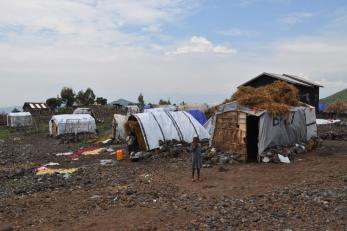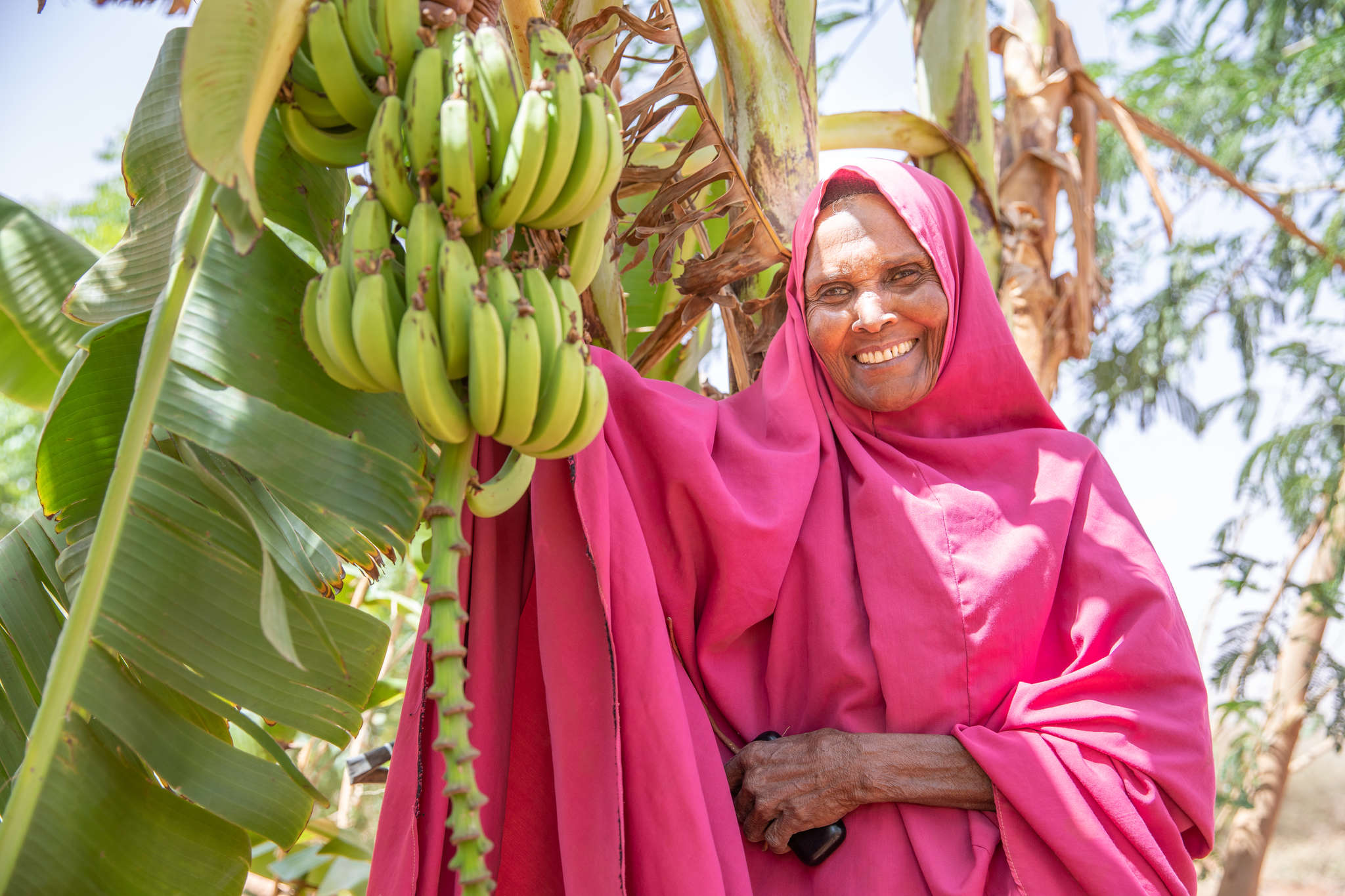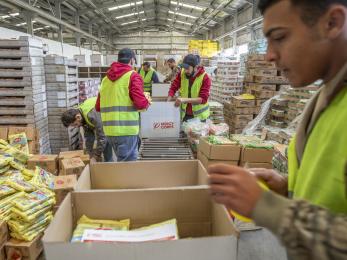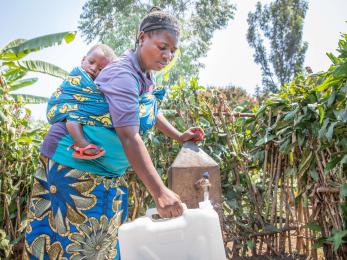Congo needs a long-term solution

As the New Year commences, more than 2.4 million Congolese are living in overwhelmed displacement camps in the Kivu provinces of eastern Democratic Republic of Congo. For years, families in this region have lived under the threat of violence, frequently forced to flee their homes for safety. Lately, things have worsened, with renewed fighting between rebels and government troops sparking a new wave of displacement.
On my recent trip to Goma, I visited one of the camps most affected by the latest round of violence: Mugunga 3, which is now swelling with more than 15,000 people. Families there require urgent assistance; many have nothing but a cooking pot or tarpaulin to their name. I saw as many as 50 families crammed into each makeshift tent that we’ve erected.
Mercy Corps is helping prevent a cholera outbreak in Mugunga 3 and other camps — as well as in Goma city — by piping in clean water, building latrines and washing stations and distributing soap and supplies, as well as food and other necessities. We've provided similar emergency assistance in the region since 2007.
Meeting basic humanitarian needs of affected families is imperative — but it is not enough.
DR Congo is one of the poorest countries on earth. Its cycle of conflict has left faltering infrastructure, disrupted trade, and distorted markets, leaving millions in desperate poverty. But the situation is not hopeless. That’s why our programs provide not just relief but also a platform for forward progress — aiming to boost farm production, promote good governance and teach business skills.
Unfortunately, more often than not, major donors to DR Congo have not pursued a similarly balanced approach. Instead, they’ve under-invested in longer-term development strategies that can not only sustain the DR Congo's people but also lift them out of poverty.
One such strategy is to rebuild economic relationships between communities torn apart by violence. Mercy Corps has seen how joint economic development projects in places once bitterly divided by conflict — including Somalia, Sudan and Iraq — can lay the groundwork for peace by creating a shared incentive and showing there is the tangible benefit to cooperation, rather than conflict.
Another key strategy is engaging DR Congo, Rwanda and Uganda in projects that promote mutually beneficial economic gains across social, ethnic and geographic divides. Tensions among actors in all three countries have undermined regional stability. The international community must incentivize collaboration and dialogue in the Great Lakes Region at all levels — community, provincial, national and regional.
Finally, the international community must help ensure that a more equitable proportion of revenues from eastern Congo's abundant natural resources is retained locally. Resources from diamonds, gold, coltan and other minerals should fund investment in conflict-affected communities, improving access to water, education services and agriculture support. These efforts will alleviate poverty and suffering and, by reducing fighting over limited resources, strengthen incentives for peace.
While there's no panacea to the DR Congo's myriad problems, only a sustained focus on long-term development will break the cycle of conflict and poverty. Current humanitarian interventions are critical, but even in the current hostilities, development agencies, donors and governments must find ways to lay the foundation for lasting change. Let us not turn our backs on DR Congo at such a critical moment.


